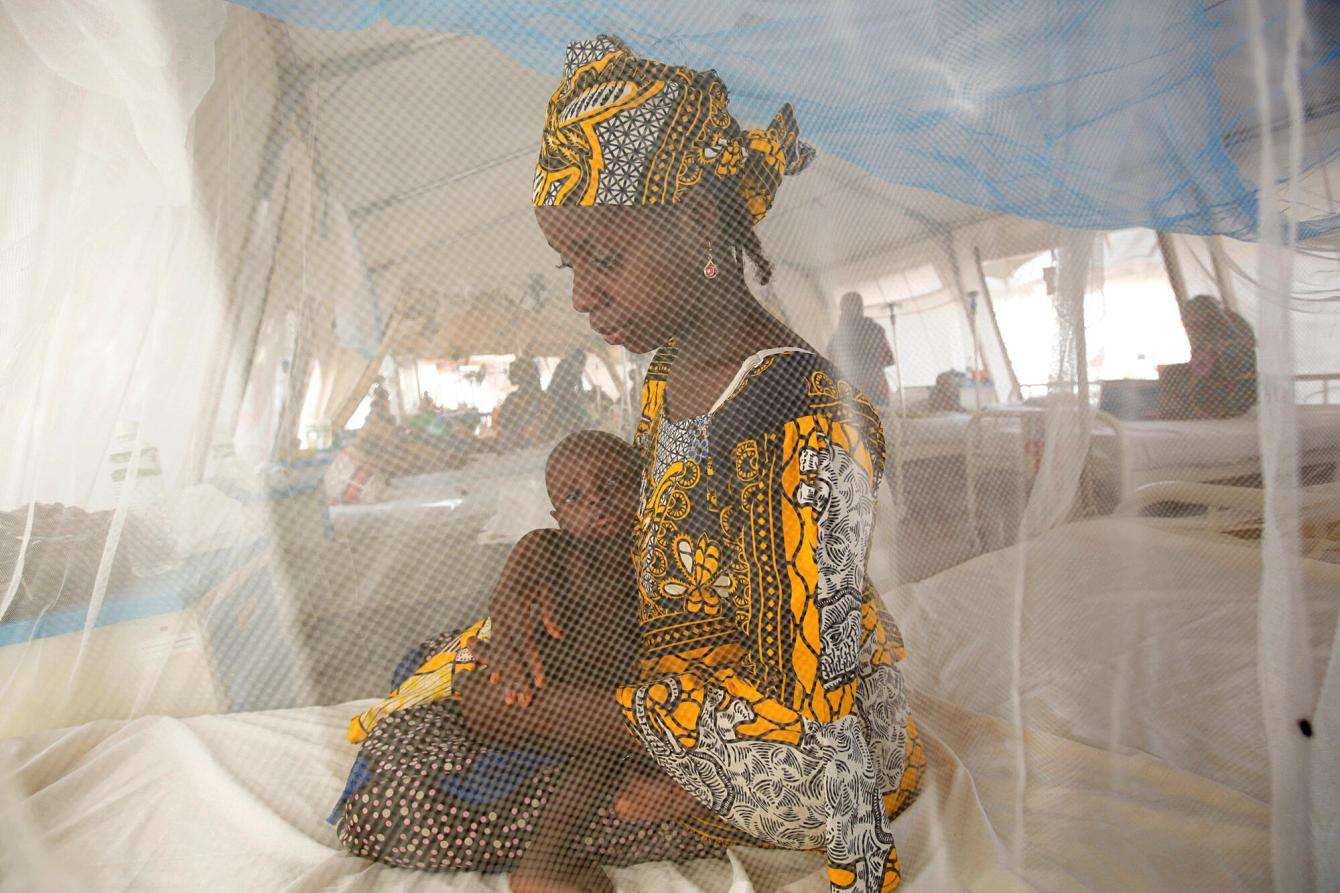NEW YORK/ABUJA, Nigeria, July 7, 2022—International aid organizations are largely ignoring a growing malnutrition crisis in northwestern Nigeria, Doctors Without Borders/Médecins Sans Frontières (MSF) said today, warning that health facilities need far greater resources to provide lifesaving treatment to tens of thousands of children.
So far this year, MSF teams have worked in partnership with Nigerian health authorities in the five northwestern states of Kebbi, Sokoto, Zamfara, Katsina, and Kano to treat more than 50,000 children with malnutrition, including 7,000 who required hospital care. The situation will soon become untenable without increased lifesaving humanitarian support, MSF warns.
"The hunger gap has begun, and the peak of malaria transmission is yet to come, which will further aggravate the health and nutritional status of children," said Michel-Olivier Lacharité, head of MSF emergency operations. “Despite our calls in recent months to both humanitarian organizations and authorities to scale up medical activities, we have not seen the mobilization needed to avert a devastating nutrition crisis. Acknowledging the acute needs of these children is long overdue, and we strongly urge making lifesaving support a priority now.”
MSF is preparing to treat up to 100,000 malnourished children this year in Katsina state and is expanding its response to malnutrition in Kebbi, Sokoto, Zamfara, and Kano, Lacharité said.
In the area of Gummi, Zamfara state, MSF teams screened more than 36,000 children under five years old for malnutrition in June. The results were alarming: nearly one in four children were severely malnourished and in need of urgent medical care. MSF, in cooperation with the authorities, is immediately launching an emergency response in the area.
In Katsina, MSF added nearly 140 beds to inpatient therapeutic feeding centers in recent weeks, but the influx of malnourished children was so great that restricted admission criteria had to be introduced in some centers. In Kebbi, where MSF runs an inpatient center and two outpatient facilities, about 1,500 malnourished children have been treated since March.

Northwest Nigeria is chronically food-insecure, and escalating violence has pushed many communities to their limits, forcing about 500,000 people to flee their homes. In recent years, armed groups that are locally referred to as "bandits" have intensified attacks, killings, kidnappings, looting, and sexual violence. Many people cannot farm, cattle are stolen, and markets and trade are disrupted amid soaring staple food prices—which remain above the five-year average in most Nigerian markets—in an already fragile health context.
The lack of humanitarian assistance in northwest Nigeria is partly due to the UN's failure to include the region in its humanitarian response plan for the country for the current year, which primarily focuses on the critical situation in northeast Nigeria. As a result, many organizations are struggling to follow up on assessments and secure funding to implement lifesaving support in northwest Nigeria, despite the known acute needs.

“The plight of malnourished children in northwest Nigeria cannot continue to be neglected,” said Froukje Pelsma, MSF head of mission in Nigeria. “International donors and agencies, including UNICEF and the World Food Program, must increase their support to health facilities to provide communities with access to nutritional treatment, in collaboration with the Nigerian authorities who must contribute as well.”
While responding to malnutrition in Zamfara since 2015, MSF has provided additional capacity in Katsina, Kebbi, Sokoto, Zamfara, and Kano states in 2021 and 2022. Today, MSF is running 25 outpatient and 8 inpatient malnutrition services across the five states, and MSF teams treated close to 31,000 children with severe acute malnutrition in 2021. MSF also recently raised the alarm on the situation in Maiduguri, Borno state, where MSF's inpatient malnutrition center is overwhelmed with high numbers of patients—2,199 children from January to June, representing a 50 percent increase compared to the same period last year.




